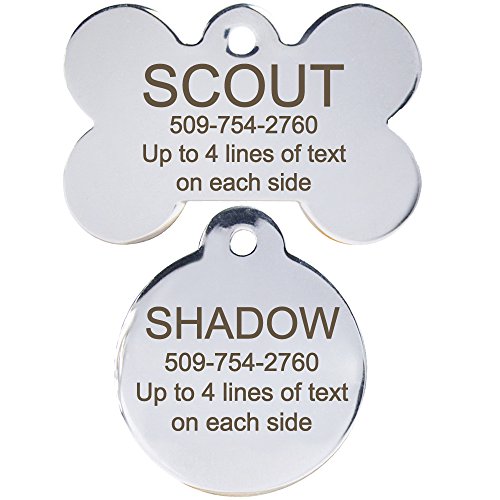
While you may have heard that you shouldn抰 buy puppies from pet stores, do you really know the reasons behind the argument? Here are 8 solid points in favor of looking for your new puppy at a shelter or locating an ethical breeder!
1. There Is No Such Thing As A Pet Store With Puppies Supplied By An 揈thical Breeder.?/strong>
However the pet store wants to phrase it, the dogs they sell in their stores are from puppy mills or from large commercial kennels. They may state that their pups come from a local breeder, but that is usually another way to say 揳 local mill.? Ethical breeders put a great deal of time and effort into their litters and care about where their puppies end up. Placing them into a store to be sold to the first person that puts up cash is an unthinkable concept for most breeders.
2. Wrong Breed? Who Cares!
The salespeople employed by pet stores often know little beyond the basics of the breeds they have 搃n stock?and their interests lie in making a sale, not a suitable match between puppy and owner. These employees are instructed to get the sale, no matter what the circumstances may be.
3. Lack Of 揊amily Values?/strong>
If you抮e interested in owning a purebred dog and make the decision to seek out an ethical breeder (as opposed to a breed rescue), you抮e going to be able to meet your pup抯 parents and maybe even grandparents! You抣l be able to hear tales of their breeding program and gain a wealth of knowledge about the breed itself. If you purchase a puppy at a pet store you often get nothing. Sure, maybe the pet store will give you a piece of paper that they call a pedigree (keep in mind a pedigree is just a list of parentage ?any dog ?mixed breed or otherwise, can have one) but without the substance behind it, it抯 meaningless.
4. Sick Puppies
Most pet stores offer little if any health guarantee on their puppies. If they do provide some sort of coverage, it is usually full of stipulations that treat a living being more like a defective appliance.
When young dogs are kept in close conditions (first in mills and then in pet stores), they are often susceptible to many of the serious illnesses puppies can contract. Parvovirus, Canine Distemper and serious gastrointestinal disorders run rampant in pet store settings. Many times these illnesses are incubating and don抰 begin to present themselves until the dogs are in their new homes. Then owners must make the heartbreaking decision to return the puppy to the store (where it will likely be euthanized) or spend hundreds (sometimes thousands) of dollars on lifesaving treatment.
5. Housebreaking Woes
Many puppies bred to be sold in pet stores have difficulty with housebreaking, and this is absolutely not their fault. Dogs have a natural instinct to avoid eliminating where they sleep or eat. Puppies who are kept in pet stores are forced to sleep, eat and eliminate all in the same confined space. They are not exposed to the outdoors and don抰 connect grass or dirt as the proper places for going to the bathroom. Teaching them to make this connection will be much harder.
6. Bred For Quantity Not Quality
Because pet store puppies are produced only to make more cute purebred dogs, rather than to better the breed or to produce healthy, stable animals, genetic defects run rampant in these dogs. While reputable breeders spend a great deal of money screening their breeding animals for hereditary defects, mill breeders do not. Hip Dysplasia, heart issues and Epilepsy are only a handful of the problems that can run rampant in dogs that are bred only for profit. While good breeders do produce dogs with these problems as well, it is the sign of an ethical breeder if they will remove a breeding dog from their line to ensure the welfare of future litters to come and continue to test for all known problems prevalent to their breed.
7. Puppy Behavioral Issues
Many pups in pet stores display a variety of behavioral issues. Puppies that are removed from their littermates before 8 weeks of age often have socialization issues and can have increased problems learning bite inhibition, as they learn to control nippiness from their mother and siblings. Often they haven抰 been exposed to many of the daily sights and sounds of a normal household like doorbells, vacuums or even children. These noises can be frightening and as a dog develops their reactions can range from shy to aggressive.
8. Continued Support Of The Puppy Mill Industry
With every dollar spent on a pet store puppy, a mill is driven to produce another litter of dogs in deplorable conditions. Buying a dog is a huge commitment and shouldn抰 ever be done on impulse. As much as you want to 搑escue?that doggie in the window, it only continues the vicious cycle of the puppy mill industry.
Keep in mind that when you deal with an ethical breeder, there is no pet store in the middle to take their share of the profits ?you抣l find most good breeders will charge no more (and sometimes less) than what pet stores are charging for their dogs. Maybe you抣l have to wait a bit, but that抯 a small price for a dog that will be right for you! Better yet, visit your local shelter and consider the adoption option! You抣l find dogs of all ages and breeds ?from purebreds to the latest in 揹esigner dogs!?
In conclusion, there are some very healthy and well-adjusted dogs that have come from pet stores, but their owners should consider themselves lucky. Of course, health and behavioral issues do come up among respected breeders as well, but the difference is that ethical breeders work to eliminate or minimize these problems, while those who run commercial kennels will continue their business to produce dogs for profit, ignoring the suffering they cause to both the animals and the humans that care for them.
 Basic Learning Theory and Dogs
Basic Learning Theory and Dogs
Basic Learning Theory and Dogs
Basic Learning Theory and Dogs
 How To Get Rid Of Ticks on Dogs Using Safe and Cheap Alternatives to Frontline Flea and Tick Control
Estimated reading time &ndas
How To Get Rid Of Ticks on Dogs Using Safe and Cheap Alternatives to Frontline Flea and Tick Control
Estimated reading time &ndas
 Where Can I Find a Dog for My Family?
Animal Shelter in Iowa, Washington
Cr
Where Can I Find a Dog for My Family?
Animal Shelter in Iowa, Washington
Cr
 How To Stop A Dog From Escaping
We love our dogs. After all,
How To Stop A Dog From Escaping
We love our dogs. After all,
 How to Find My Runaway Dog
If you are a dog owner, you
How to Find My Runaway Dog
If you are a dog owner, you
Copyright © 2005-2016 Pet Information All Rights Reserved
Contact us: www162date@outlook.com